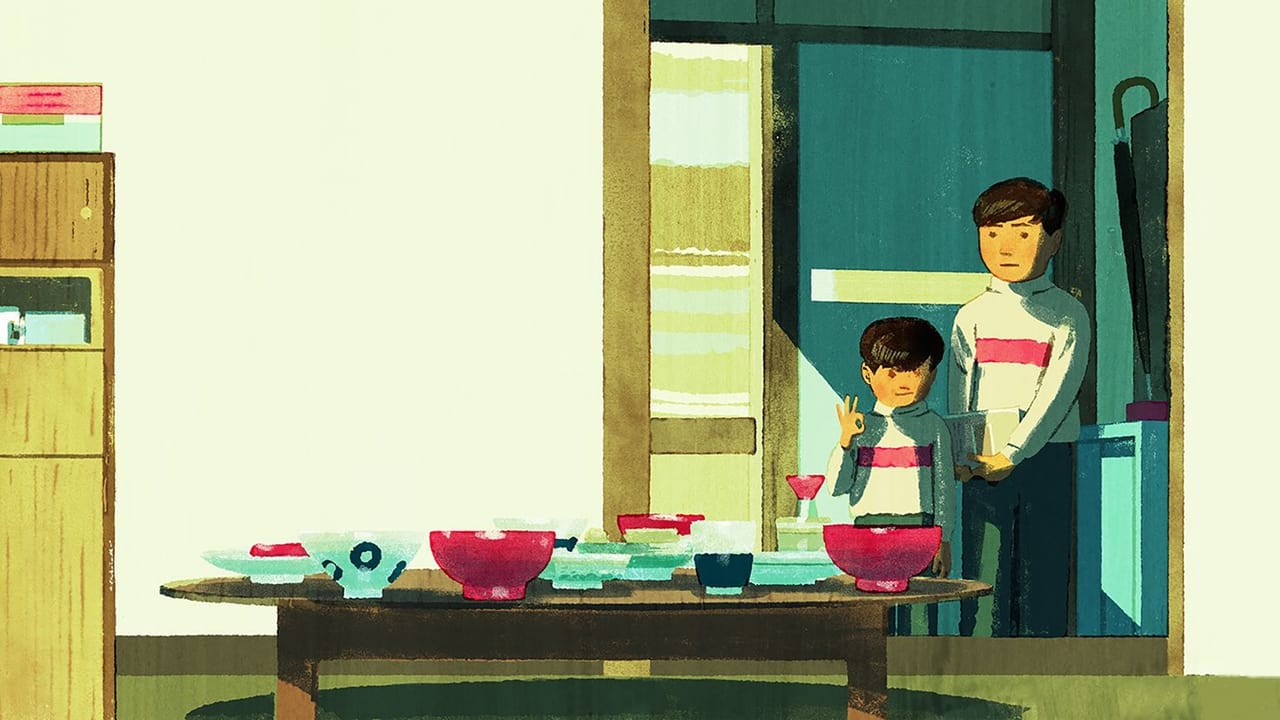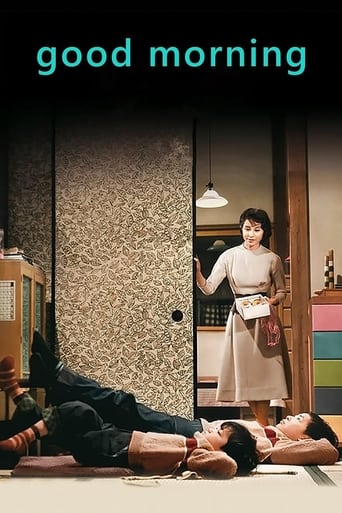

Strong and Moving!
... View MoreOk... Let's be honest. It cannot be the best movie but is quite enjoyable. The movie has the potential to develop a great plot for future movies
... View MoreThe film's masterful storytelling did its job. The message was clear. No need to overdo.
... View MoreThe film may be flawed, but its message is not.
... View MoreI agree with a former submitter here, it is the, "skimpiest of plots" with "two young brothers taking a vow of silence until their parents buy them a television." Yet - it is mainly the subject of language, attentiveness, and intelligence. It is subtly beautiful with each shot is perfectly framed with an excellent use of depth that highlights exactly what the director wants you to see and giving you plenty of space to focus and it is truly a fine introduction for younger viewers to the magnificence of international cinema. BUT - that being said .... it has the most horrible, blatant, ridiculous message screaming at the viewer: "HEY! Let's be rude, impolite, spoiled and bully our parents until we get what we want!" No thanks. I was nearly 10 years old when this movie came out in 1960 and even then I KNEW acting like this was so wrong. Then, as now, if children acted like the two brothers in this movie - HELLO MILITARY SCHOOL!
... View MoreAfter directing his most characteristic and famous later films (Early Morning, Late Afternoon, Tokyo Story) - which addressed the same theme with remarkable differences in tone - GOOD MORNING is a pleasing palate freshener. This family drama is also a witty comedy dealing with the miscommunications that complicate modern life.This was Ozu's second color film (after Equinox Flower), but the cheerful music and bright colors make for different effects. GOOD MORNING'S "gas" jokes are gentle and clever (the young boys fart on command, a minor character works for the gas company, while a husband farts in one room, and a wife answers, etc.) The film's famous static shots center around a gleaming refinery. One of the film's delights comes from watching the visual and thematic elements weave together, and so effortlessly that it's thrilling to see it develop. This is my personal favorite Ozu film, if only because it perfectly balances drama and comedy, metaphor and visuals. GOOD MORNING is the kind of movie you can see repeatedly, as there are always new things to discover. It certainly doesn't hurt that it's also a technically refined work, up to Ozu's highest standards.
... View MoreThis film is typical of the films of the Japanese director, Ozu, because it has to do with the conflict between traditions and modern life in this country. It also features his old fashioned use of the camera--with the typical placement of the camera just below the actors as well as it remaining stationary during the shots. However, unlike most of his films, this is more of a lite comedy and makes fun of social conventions and neighbors.The film begins with two simultaneous themes. First, a group of neighbor women are in a women's club and the dues they gave their leader seem to have vanished. While the lady is sure she turned the money in, the other women begin wondering what might have happened with the funds. Second, two boys are very upset because their parents won't buy them a television. And, when the parents are sick of hearing the kids ask, they tell the boys to be quiet. Then, in a form of social protest, the boys refuse to talk any more to anyone--even at school. The only time they talk at all is when they are alone together.Later, it turns out that the club leader's mother had misplaced the money and everything was okay. BUT, because the boys stopped talking to everyone, the leader of the club thinks their not acknowledging or talking with her is because the family is still mad about the money. So, the rest of the film consists of come misunderstandings that all come about due to the spunky kids.Overall, this is not a laugh out loud sort of film, but a droll little film that gives insight into life in late 1950s Japan. It's slow and gentle--just like all of Ozu's films but with a sense of satire that makes some points about the hazards of post-war life. Well directed and acted from start to finish.By the way, note the comment the one lady makes to her mother about Mt. Norayama--it's amazingly brutal and harsh, but also makes a point about alienation and the disintegration of respect of the elderly.
... View MoreEveryone else seems to be delighted with this "lightweight" comedy. I found it dull and depressing. It only made sense to me as an ironic commentary on the void of postwar Japanese suburban culture. There's nothing cute in the film at all, fart and poop jokes notwithstanding. The feeling of petty horror reminded me of Fassbinder and Ozon. I understand that some reviewers get nostalgic for past they see here, but let me suggest that much of what we see here is deliberately imagined, and that Ozu may well have meant this film as a cry of despair. Since everyone's dirty laundry is paraded for inspection, the final scene can only be a wry joke.
... View More